By Tracy Smiles, Western Oregon University
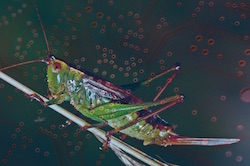 Equipped with his five senses, man explores the universe around him and calls the adventure Science.
Equipped with his five senses, man explores the universe around him and calls the adventure Science.
There is little question as to the extraordinary ways non-fiction literature for children has developed both with regard to quality and availability. Long before the implementation of the Common Core State Standards with the added emphasis on reading expository texts, children’s publishers and authors have crafted fascinating literature about every possible topic imaginable, from history to science, presenting stories set in far the reaches of the world and universe, and as such, these texts present young readers with gorgeous literature chock full of information and images that appeal to children and adults alike. I personally feel ten times smarter every time I read a book from , for example, the Scientists in the Field series, or about the a famous scientist, or the latest in robot/insect technology.
The Tucson Festival of Books brought together four authors who are writing the kinds of books I just described, notable non-fiction books about science: Helaine Becker, Elizabeth Rusch, Loree Griffin Burns, and Sarah Albec. I was lucky enough to attend this session and listen to these authors who, on first appearances, looked more like soccer moms than daring science writers who embark on risky journeys in spirit of telling, as Loree Giffin Burns shared, “the story of science.” These authors shared personal accounts about what inspires their writing, and how they go about researching the subjects of their books.
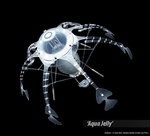 Helaine Becker is a prolific author of children’s books that include, but are not limited to science. Some of her notable science texts include The Insect Files, The Big Green Book of the Big Blue Sea (a personal favorite of mine) and Zoobots. Becker openly admits that she is far better suited to being an author of children’s books than more conventional work that required her to wear shoes, and keep a schedule. Her quirky personality and interests are reflected in the books she writes. For instance, her latest book, Zoobots, is about robo-animals, a.k.a. zoobots. It takes the reader into the fascinating world of scientific research on creating robots that mimic animal qualities in order to perform specific tasks or solve problems. Similarly, her book The Insect Files shares little known information about all sorts of insects and presents engaging activities inviting the young reader to explore the hidden world of bugs. Becker claims she has particularly keen insight into what appeals to ten year olds because she claims she is still ten herself. Whatever her source of inspiration, we are all enriched by her engaging, hands-on books science books.
Helaine Becker is a prolific author of children’s books that include, but are not limited to science. Some of her notable science texts include The Insect Files, The Big Green Book of the Big Blue Sea (a personal favorite of mine) and Zoobots. Becker openly admits that she is far better suited to being an author of children’s books than more conventional work that required her to wear shoes, and keep a schedule. Her quirky personality and interests are reflected in the books she writes. For instance, her latest book, Zoobots, is about robo-animals, a.k.a. zoobots. It takes the reader into the fascinating world of scientific research on creating robots that mimic animal qualities in order to perform specific tasks or solve problems. Similarly, her book The Insect Files shares little known information about all sorts of insects and presents engaging activities inviting the young reader to explore the hidden world of bugs. Becker claims she has particularly keen insight into what appeals to ten year olds because she claims she is still ten herself. Whatever her source of inspiration, we are all enriched by her engaging, hands-on books science books.
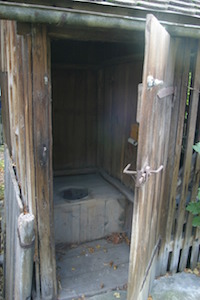 Speaking of books about quirky topics, few can top the historically based science texts by Sarah Albee. Some titles include: Poop Happened!: A History of the World from the Bottom Up, Bugged: How Insects Changed History, and Why’d They Wear That?: Fashion as the Mirror of History. As the daughter of two college professors, her interest in topics around hygiene, infection, and disease began early, which later resulted in the books Poop Happened and How Insects Changed History. And while the subject of poop, insects, and disease may not look very appealing, her books are wildly popular and incredibly interesting. I once loaned my copy of Poop Happened to a middle school teacher five years ago, and she has yet to return it. Ms. Willow explained, “I keep wanting to bring it back, but it is never on the shelf—my students love it!”
Speaking of books about quirky topics, few can top the historically based science texts by Sarah Albee. Some titles include: Poop Happened!: A History of the World from the Bottom Up, Bugged: How Insects Changed History, and Why’d They Wear That?: Fashion as the Mirror of History. As the daughter of two college professors, her interest in topics around hygiene, infection, and disease began early, which later resulted in the books Poop Happened and How Insects Changed History. And while the subject of poop, insects, and disease may not look very appealing, her books are wildly popular and incredibly interesting. I once loaned my copy of Poop Happened to a middle school teacher five years ago, and she has yet to return it. Ms. Willow explained, “I keep wanting to bring it back, but it is never on the shelf—my students love it!”
Meeting authors of several of the Scientist in the Field series was particularly exciting to me, especially the authors who wrote two of my favorite books from that series, The Honeybee Detectives by Loree Griffin Burns and The Mars Rover by Elizabeth Rusch. Seeing these women speak was an unexpected surprise.
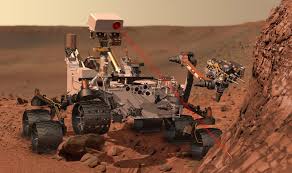 Elizabeth Rusch has written several books that are part of the Scientist in the Field series, including, as I mentioned The Mighty Mars Rover: The Incredible Adventure of the Spirit of Opportunity, Eruption!: Volcanoes and the Science of Saving Lives, and her latest in that series, The Next Wave: The Quest to Harness the Power of the Oceans. Rusch shared daring stories of research and writing, including how she visited some of the live volcanoes she wrote about in both Eruption, and her other book about volcanoes, Volcano Rising, and the harrowing boat ride on the research vessel examining waves as a source of hydraulic energy in The Next Wave, a ride that left most passengers sea sick and vomiting. Her energy was infectious, and her books, that also include biographies about notable scientists like Tesla in Electrical Wizard: How Nikola Tesla Lit Up the World and astronomer Mike Brown in Planet Hunter: The Story Behind What Happened to Pluto not only tell unfamiliar stories of science and history, but take us into the exciting world of scientific discovery and exploration.
Elizabeth Rusch has written several books that are part of the Scientist in the Field series, including, as I mentioned The Mighty Mars Rover: The Incredible Adventure of the Spirit of Opportunity, Eruption!: Volcanoes and the Science of Saving Lives, and her latest in that series, The Next Wave: The Quest to Harness the Power of the Oceans. Rusch shared daring stories of research and writing, including how she visited some of the live volcanoes she wrote about in both Eruption, and her other book about volcanoes, Volcano Rising, and the harrowing boat ride on the research vessel examining waves as a source of hydraulic energy in The Next Wave, a ride that left most passengers sea sick and vomiting. Her energy was infectious, and her books, that also include biographies about notable scientists like Tesla in Electrical Wizard: How Nikola Tesla Lit Up the World and astronomer Mike Brown in Planet Hunter: The Story Behind What Happened to Pluto not only tell unfamiliar stories of science and history, but take us into the exciting world of scientific discovery and exploration.
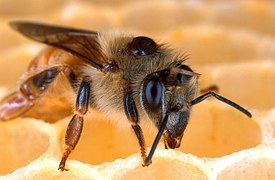 Seeing and listening to Loree Griffin Burns was especially exciting. While serving on NCTE’s Notable Children’s Books in the Language Arts selection committee I got to write the annotations for Honeybee Detectives: Chronicle of a Honeybee Catastrophe, a book that, while non-fiction, was written so beautifully it won a place on a list that chooses books based on their use of language. Burn’s other Scientists in the Field books include: Tracking Trash: Flotsam, Jetsam, and the Science of Ocean Motion about how following trash in the ocean is providing important data on the impact of garbage on the ocean and what can be done to protect it, and Beetle Busters, about the devastation the Asian longhorned beetle is wreaking on our forests. Additionally, she wrote Handle with Care: An Unusual Butterfly Journey about a butterfly farm in Costa Rica and Citizen Scientists: Be a Part of Scientific Discovery in Your Own Backyard, perhaps one of her most notable books, winning multiple honors such as the National Council of Teachers of English (NCTE) Orbis Pictus Honor Book Award. Burns, who is a scientist herself, feels that as her role as an author she charged with not only telling the story of science, but inspiring thoughtful new actions in her readers. Her work on the book Tracking Trash impacted her deeply, and her commitment to sharing information about how we can protect the planet is obvious not only in her books, but in who she is and what she values.
Seeing and listening to Loree Griffin Burns was especially exciting. While serving on NCTE’s Notable Children’s Books in the Language Arts selection committee I got to write the annotations for Honeybee Detectives: Chronicle of a Honeybee Catastrophe, a book that, while non-fiction, was written so beautifully it won a place on a list that chooses books based on their use of language. Burn’s other Scientists in the Field books include: Tracking Trash: Flotsam, Jetsam, and the Science of Ocean Motion about how following trash in the ocean is providing important data on the impact of garbage on the ocean and what can be done to protect it, and Beetle Busters, about the devastation the Asian longhorned beetle is wreaking on our forests. Additionally, she wrote Handle with Care: An Unusual Butterfly Journey about a butterfly farm in Costa Rica and Citizen Scientists: Be a Part of Scientific Discovery in Your Own Backyard, perhaps one of her most notable books, winning multiple honors such as the National Council of Teachers of English (NCTE) Orbis Pictus Honor Book Award. Burns, who is a scientist herself, feels that as her role as an author she charged with not only telling the story of science, but inspiring thoughtful new actions in her readers. Her work on the book Tracking Trash impacted her deeply, and her commitment to sharing information about how we can protect the planet is obvious not only in her books, but in who she is and what she values.
Seeing these amazing authors of non-fiction science present together was nothing short of an unique experience—the kind I have every time I attend the Tucson Festival of Books. Their books exemplify the notion that even non-fiction texts are nothing more than stories, stories that explain the natural world while engaging our imaginations and expanding our notions of what it means to be human. These authors tell power stories about science and history, science and saving lives, science and culture, and offer insights how we might engage with the extraordinary world in which we live, and this enriches us all.
Journey through Worlds of Words during our open reading hours: Monday-Friday, 9 a.m. to 5 p.m. and Saturday, 9 a.m. to 1 p.m. To view our complete offerings of WOW Currents, please visit archival stream.
- Themes: Tracy Smiles
- Descriptors: Books & Resources, WOW Currents

Wow!
Awesome!